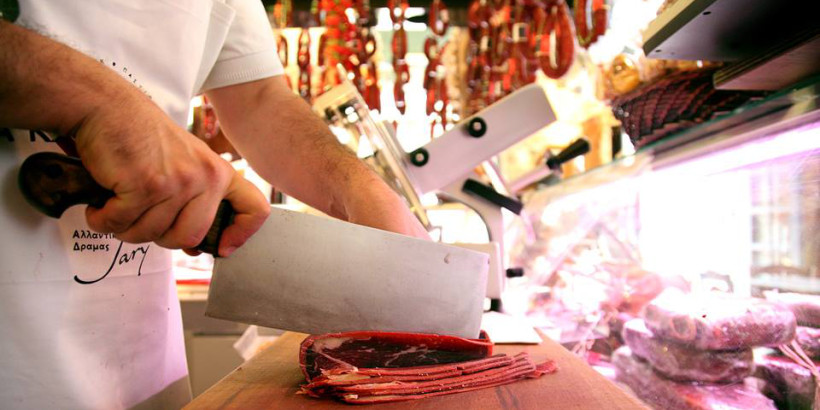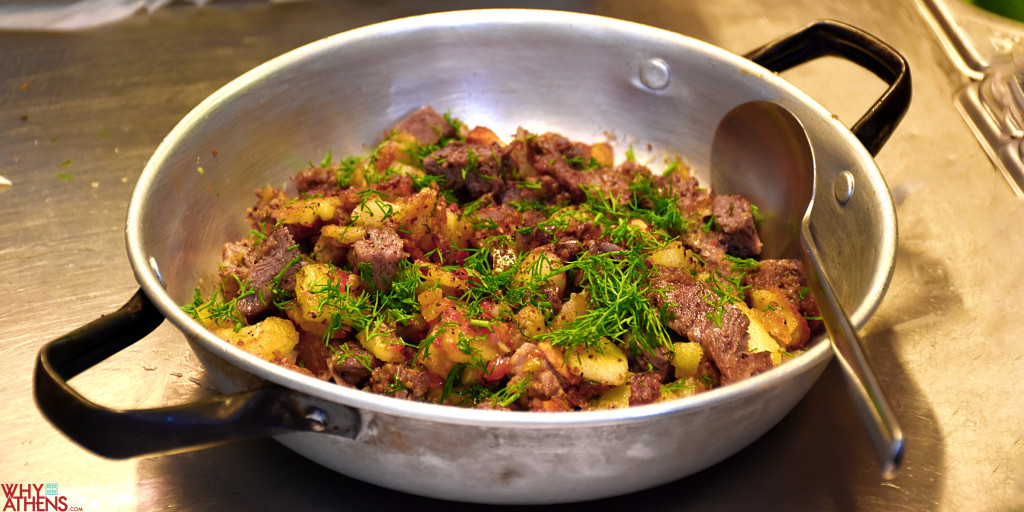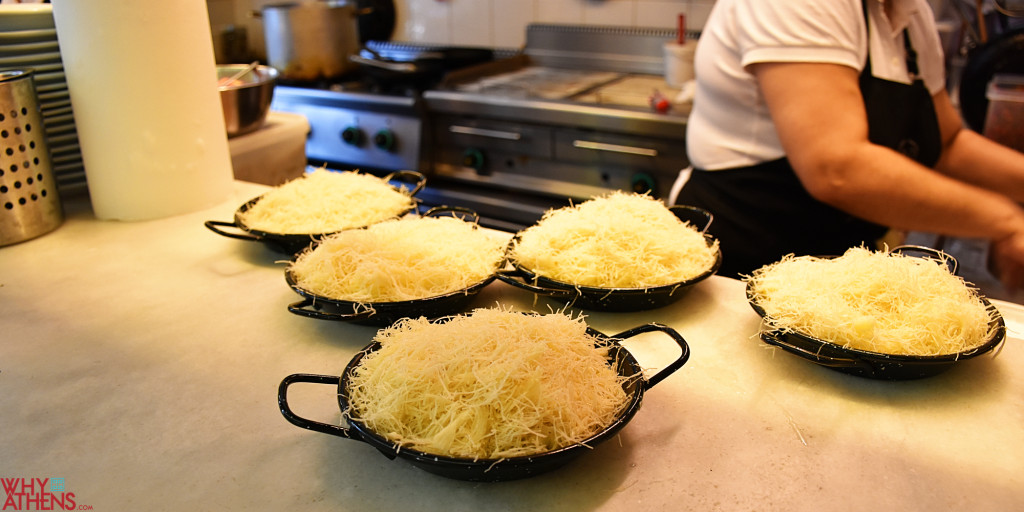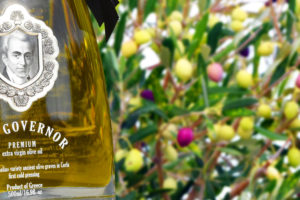The native people of Karaman and Cappadocia in Central Anatolia spoke and wrote in Turkish using the Greek alphabet but were Orthodox Christians. They became known as the Karamanlides who were forced to leave their homeland along with 1.5 million other Anatolian Greeks, as part of the immigration exchange between Greece and Turkey in 1923.
Today, Ta Karamanlidika tou Fani is a charcuterie and ‘mezetzidiko’ that honours their heritage, creating an Athenian modern day version of what was known as a “pastomageirio” or a “tavern of salted goods” that flourished in Byzantine times. An eclectic, uncomplicated meze menu has been assembled by Stella Spanou, a chef and cookbook author from Thrace, who provides a sensory journey to the East.
The Karamanlides and Cappadocian Greeks brought with them many specialist trades including curing and drying meat based on ancient traditions dating back to Byzantium. Many Karamanlides had become artisans of Pastirma or “Pastourmas” in Greek, that refers to a method of curing and drying meat after layering with a fragrant paste of cumin, fenugreek, garlic and hot paprika. The result is beautifully preserved meat that is full of flavour and is surprisingly soft and delicate on the palette.
The varieties of pastirma and other dried meats found at this Athenian mezetzidiko, are combined with organic, fresh local ingredients that has captivated both locals and visitors to Athens. Owner Fanis Theodoropoulos’ vision was very much about supporting Greek producers. “It’s about quality over quantity and keeping prices honest”, he said. “These Greek products are as good as anything you will find though out the rest of Europe.”
A grocery area stocks a curated selection of Greek products from small-scale producers including, cornelian cherry jam and liqueur, dried figs, Greek honey and the award winning Maleas olive oil from Laconia.
Fanis is no stranger to the local food trade, being the second generation in his family to run a small over the counter charcuterie across the road called Arapian, that was established in the 1920’s and run by his father through out the 1960’s, it became famous for their pastourma and soutzouki (dried sausage).
The idea to open Ta Karamanlidika he tells me, “came from customers who wanted a place to sit, enjoy a drink and taste the various delicacies,” he said. The seed was planted and very soon put into motion when a vacant 1870’s building opposite his shop became available.
A restoration of the building began and a partnership was established between Fanis and Paraskevas Sarimpoyias, owner of Sary, a renowned Greek producer of Pastirma and other cold meats and who is a descendant of a Karamanli family. Sary adopts the traditional methods and recipes from Anatolia at their production facility in Drama, in the North of Greece.
The synergy has created a winning formula that has re-engaged locals with their culinary roots, something that thankfully seems to be a growing trend in Athens. Many ‘neo-tavernas’ are focusing on Greek regional cooking such as Cretan cuisine and embracing the top-notch Greek ingredients being harvested and produced around the country.
Karamanlidika’s menu provides a telling story of political and religious conquests, blurred borders and of a group of people who had to adapt to survive. One dish on the menu captures the idea of East meets West perfectly; “Sachanaki Karamanlidiko with pastirma from the Karamanlides and ‘suduc’ from the Constantinople tradition with eggs and tomato.”
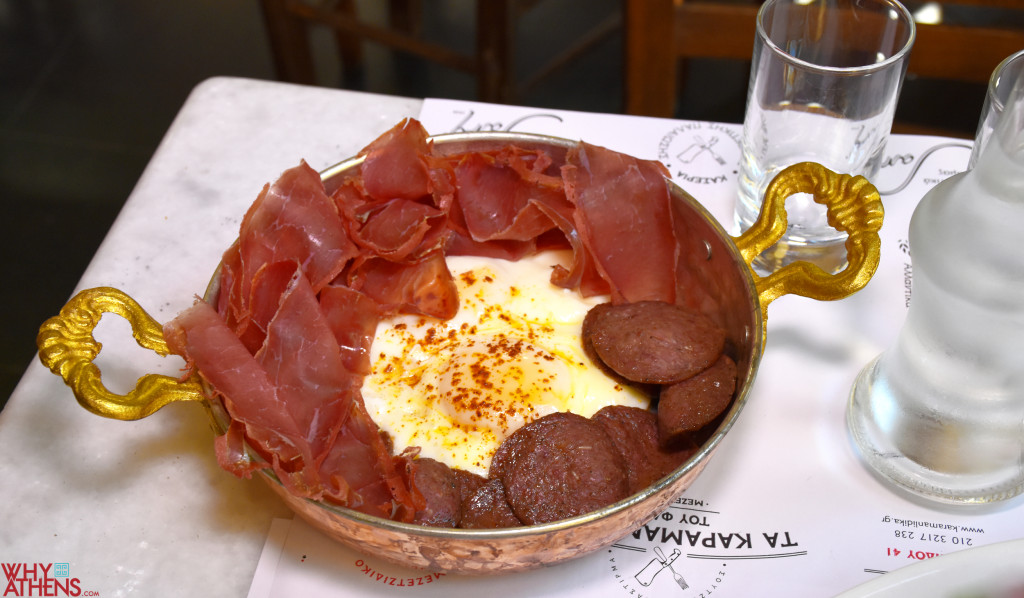
East meets West: ‘Sachanaki Karamanlidiko’ with pastirma. Photograph: Why Athens | Ta Karamanlidika tou Fani
The kitchen is a buzz everyday under the watchful eye of kitchen manager Maria Maliarou. Fresh organic and sustainably produced ingredients are paired with the highest quality artisanal meats to produce unique, mouth watering flavours.
When Karamanlidika turned one earlier this year, they honoured the history and story of the people of Cappadocia once again, with music, traditional costumes and dancers.
I hope to visit Cappadocia one day soon, to get a better sense of its indigenous people and history, but in the meantime I will return to Ta Karamanlidika tou Fani, pour myself a glass of Tsipouro from Naousa and allow my senses to embark on a culinary journey back in time where the pastomageirio taverns once thrived and the pastirma was just as good.

Photograph: Greek products from small-scale producers. From left; Cornelian cherry liqueur, Cornelian cherry jam and Maleas Olive oil from Laconias
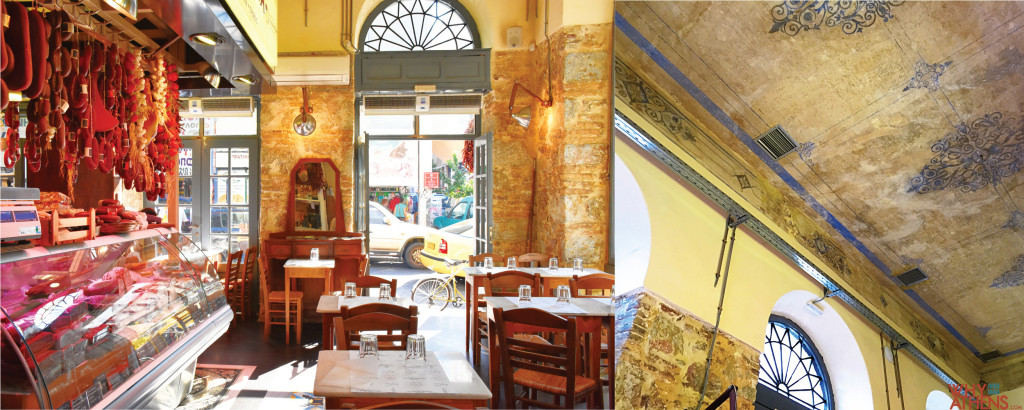
Photograph: An impressive restoration inside this neo-classical building. Original frescos adorn the ceiling

Photograph: Courtesy of Ta Karamanlidika tou Fani. One year birthday celebrations on 15 May 2015 with traditional costumes, dancing and music of Cappadocia.
We would like to thank all the staff at Ta Karamanlidika tou Fani for their assistance. This post was not sponsored in any way and as always all opinions are our own.
More information about visiting Ta Karamanlidika tou Fani can be found here.

